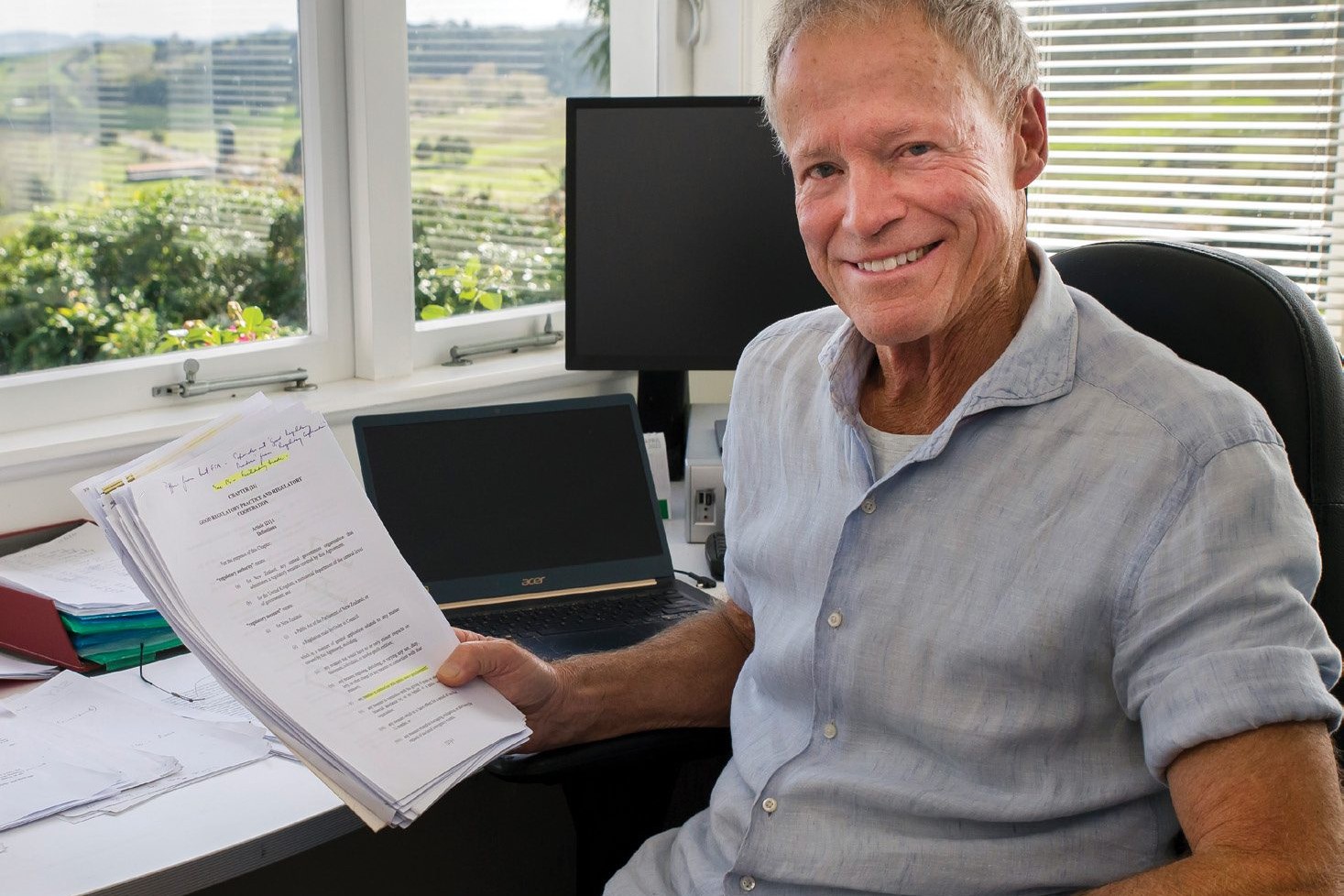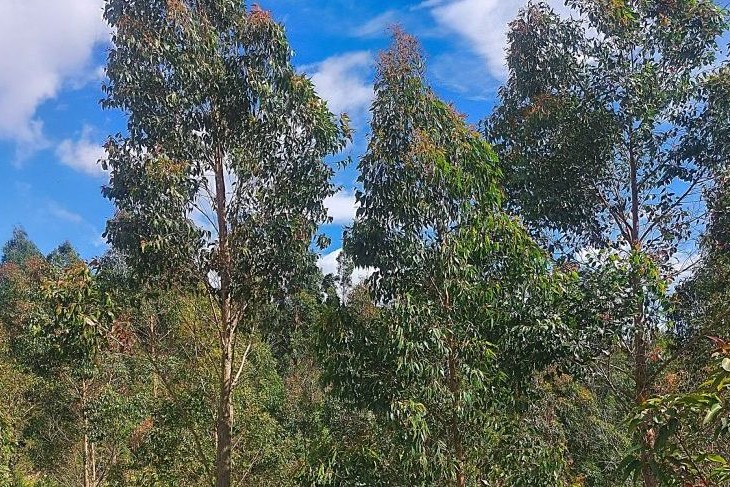Trade deals for UK
Former trade and agriculture minister Lockwood Smith may be retired from politics but he is still working for politicians. Glenys Christian writes.

Former trade and agriculture minister Lockwood Smith may be retired from politics but he is still working for politicians. Glenys Christian writes.
Lockwood Smith’s unusual background has seen him appointed to the first and second United Kingdom trade and agriculture commissions.
While the first, set up in 2020, was an independent advisory board to inform the UK Government’s trade policies, the second is tasked with scrutinising future free trade agreements (FTA) starting with Australia and New Zealand.
He’s the only non-British member and much of the work is carried out online. This has seen him in meetings from 11pm to 3am and, because he was also appointed by a major think-tank to a commission reviewing the UK public service, sometimes further meetings from 4-6am.
“It’s a bit challenging catching up on sleep,” he says.
But he’s well equipped to assist the UK Government, and at the same time scotch any misconceptions about farming practices here and over the Tasman.
Smith has been NZ’s Minister of Agriculture, International Trade, Speaker of the House, High Commissioner to the United Kingdom and Ambassador to Ireland.
He still sees plenty of work ahead encouraging the best possible access to markets.
The first commission was able to get all UK farming organisations to agree to open market access for imported agricultural products produced to equivalent standards to those required of UK farmers. It paved the way for both the Australian and NZ FTAs.
While both these agreements are signed off they’re not yet ratified, but the UK Parliament doesn’t have the power to amend the agreements, just to vote yes or no.
The work of the commission is to advise the UK Government as to whether new FTAs, with respect to agricultural products, are consistent with the maintenance of UK regulatory standards in relation to animal and plant health, animal welfare and the environment.
The commission’s report on the Australian FTA has been released. Animal welfare issues such as mulesing of Merinos, and livestock transport time limits in Australia were all raised in submissions received and had to be dealt with by the commission.
“I was able to bring a bit of realism to the work, explaining the vast differences in farming environments between Australia and the UK,” he says.
FTAs until now have not usually included animal welfare chapters, lest they be used as a technical barrier to trade. However, it’s a matter of genuine concern in the UK and the NZ FTA also includes a carefully worded chapter on animal welfare.
“We wouldn’t have been able to negotiate open access for our products without it,” Lockwood says.
“The key issue is whether our standards are equivalent to those in the UK. In that regard, it’s helpful that on the International Animal Protection Index, NZ ranks above the UK for the welfare of farmed animals.”
Another issue dealt with regarding the Australian FTA was the suggestion that deforestation in New South Wales and Queensland could expand livestock farming, with implications for climate change. Again, Lockwood’s practical knowledge was useful.
For the NZ FTA, this issue shouldn’t arise as the Emissions Trading Scheme (ETS) is incentivising reforestation.
“But the blanket carbon farming we’re seeing as a consequence is causing widespread farmer concern,” Lockwood says.
“I drove up the Napier/Taupo highway a while back, distressed to see good land going into pines and that saddens me.”
Damage from slash after flooding, the impact on soil and native wildlife, not to mention the damaging effects on our rural communities all worry him.
Targets ‘over the top’
The Government’s reduction targets for agricultural greenhouse gas (GHG) emissions are over the top, Smith says.
“The focus should be on the carbon intensity of our agricultural products.”
He describes some carbon accounting for our GHG emissions as being “primary school standard”.
“We’re told NZ has high per-capita carbon emissions, and that agriculture is largely to blame,” he says.
“What’s ridiculous about that is that if our economy was based on the export of oil rather than food, we’d have one of the lower per-capita emissions levels in the developed world. Emissions associated with the export of oil are accounted for in the country that consumes it, while emissions associated with the export of food are accounted for in the country that produces it.”
“What’s more, you’d think from the reports as to how bad methane emissions from cattle are that these wretched beasts just make this methane from within their own bodies. Of course every atom of carbon in that methane comes from carbon dioxide sequestered from the atmosphere by pasture as recently as three or four weeks ago. It takes six molecules of carbon dioxide to produce one molecule of cellulose, and of that cellulose consumed by a cow, less than one tenth ends up as methane.
“On that basis, if you look at the atomic weights, how many tonnes of carbon dioxide have to be sucked out of the atmosphere by pasture to produce a tonne of methane? The carbon accounting system just seems to ignore it. Climate change is too important to let perverse policy outcomes result from sloppy carbon accounting.”
Lockwood argues that in the decade until the 1984 election “farmers were farming partly for subsidies”.
“Agriculture wasn’t advancing as there was little uptake of science and technology.”
He said this country produced world class agricultural scientists in the past, such as C P McMeekan, geneticists Brian Wickham, Dorian Garrick, retired Massey Deputy Vice-Chancellor, Robert Anderson, and his great mentor, Prof Al Rae. There were also ruminant nutritionists like Lindsay Wallace and Marc Ulyatt. Yet the Lange/Douglas years saw agriculture derided as a sunset industry.
Lockwood believes this started a drop-off in agricultural student numbers, with fewer students doing high level studies in such disciplines as ruminant metabolism.
“We now see a greater reliance on scientists who’ve done their undergraduate work overseas,” he says.
“Some haven’t been immersed in NZ agriculture.”
The recent flood of social media coverage extolling the environmental benefits of plant-based food also troubles him. Nutritionally, most plant products don’t contain the full complement of essential amino acids, he says. And he points out that while much of NZ is ideal for livestock farming it’s not so good for cropping.
“We also risk, with repeated cropping, releasing soil carbon back into the atmosphere,”he says.
“NZ’s significant soil carbon storage has been built up over generations of livestock farming. It’s not all a one way street.”
His view is that regenerative agriculture makes sense in parts of America where some land has been depleted by repeated cropping, but not in most of NZ.
He is also disappointed that productivity improvement in the beef industry sits about 10-12% over the past 30 years while the sheep industry has shot ahead by 170%.
“That’s a staggering improvement,” he says.
“The dairy industry’s not done too badly either with a 30% improvement, but the beef industry is the laggard. We have to address that and I’ve tried to get scientists to look at it.”
In his opinion part of the problem goes back to the meatworks’ payment system, where the averaging effect of grading lumps such widely differing meat yields together. Lockwood says his muscle scanning data proves the problem.
“Farmers should be paid for what they actually produce. At present they’re paid the same for fillet steak as they are for bone. Little wonder productivity is suffering. Where’s the incentive? If farmers were paid for what actually comes off the carcase they would respond.”
Asked what he would do if he were still Minister of Agriculture, Lockwood said he would put far greater effort into ensuring regulatory developments in farming were better focused on engaging with farmers to achieve positive outcomes, rather than the top-down, heavy-handed approach.
“Most officials developing this rash of regulations have never been on a farm in their lives,” he says.
“They have no idea of the unworkable nature of some of the nonsense they come up with.”
He says he’d like to see some real intellectual grunt from both sides of politics addressing the critically important issues New Zealanders face in both caring for our environment and climate change.
“Right now I’m just not seeing that genuine intellectual input from politicians,” he says.
“I lose sleep over the very real risk of unintended, negative consequences from poorly thought through policies.”




